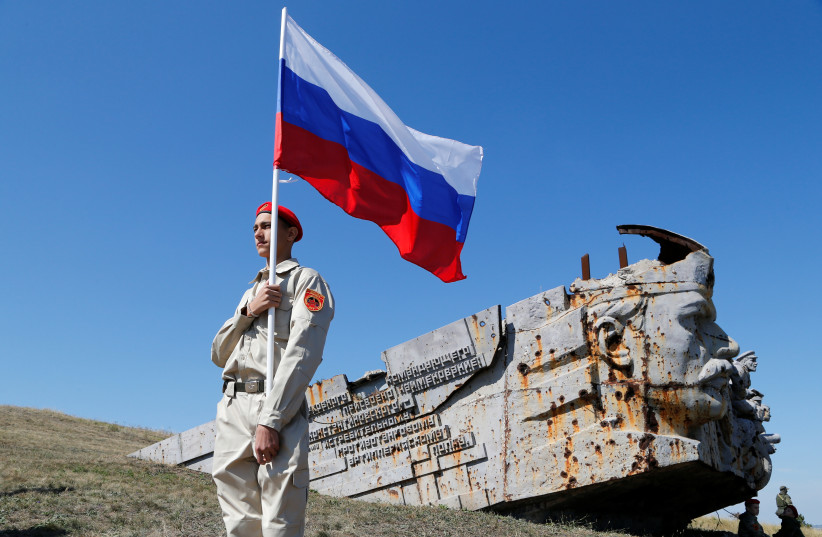A criminal makes an offer to terrified parents to murder a child and give them a new, healthy, heart for their daughter. A young soldier begs a doctor not to send him back to his platoon. A woman, tired of her partner’s constant taunts, begins an affair, and all of this happens on the shore of The Lake.
Written by Mikhail Durnenkov, this adaptation has actors speaking in their mother tongues, Russian, Hebrew, Arabic, and Ukrainian, at key moments, which further heightens their conflicts.
“We should learn from you,” Nour Mograbi says in Arabic, “you talk about the Jewish nation, so no individual is actually responsible.”
“What are you saying?” Yuri Kazantzev asks in Russian, “that we should harm another little girl just so that ours….”
“In our country,” Yishay Ben Moshe says in Hebrew to Lena Fraifeld in the role of his Ukrainian partner, “we say coffee, not kawa, co-ffee!”

Written during the 2014 Russian invasion of Crimea, the play proved prophetic in its depiction of Russian warmongering: “I always take what’s mine,” as one brutal character explains to the terrified middle-class visitors at the lake.
Having sought asylum in Finland, Durnenkov was unable to attend the June Israeli premiere of his play in person, as it was not certain he would be allowed back there if he traveled abroad. Nevertheless, he discussed the work online with director Ariel Nisan Wolf, and theater director and activist Einat Weizman in a special event after the performance.
“For a creator, there is no pleasure in being called prophetic,” Durnenkov told the audience. “It is much better that people listen to you while there is still time.”
Russia's theater scene forced to flee by Putin
Durnenkov is not the only theater talent forced to leave Russia under the current regime. Critic and historian Marina Davydova fled her Moscow apartment in March after a large Z letter was daubed on it. The letter sprung as a meme that supports the Russian military and the war on Ukraine. It is also used to mark the homes of people publicly opposed to the war.
Actress Chulpan Khamatova currently lives in Latvia, where she obtained asylum after she publicly spoke out against the war.
Director Eugenia Berkovich and playwright Svetlana Petriichuk were arrested for co-creating Finist The Brave Falcon. The play, which depicts Russian women who fell in love with radical Muslim militants in Syria online, and then went there to join ISIS, is considered by the Russian state as pro-terror theater.
If the purpose of theater is, as Shakespeare suggested in Hamlet, to show “the very age and body of the time his form and pressure,” theatergoers here are fortunate to breathe the air of a still-free society.
Together, they may visit the shores of The Lake and learn from the pain and experience of others.
The Lake will be shown at Temuna Theater (8 Soncino St., Tel Aviv) on August 31 at 8 p.m., October 26 at 8 p.m. and October 27 at 8 p.m. An actress onstage translates the parts of dialogue not in Hebrew. NIS 80 per ticket. Call (03) 561-1211 to book.
